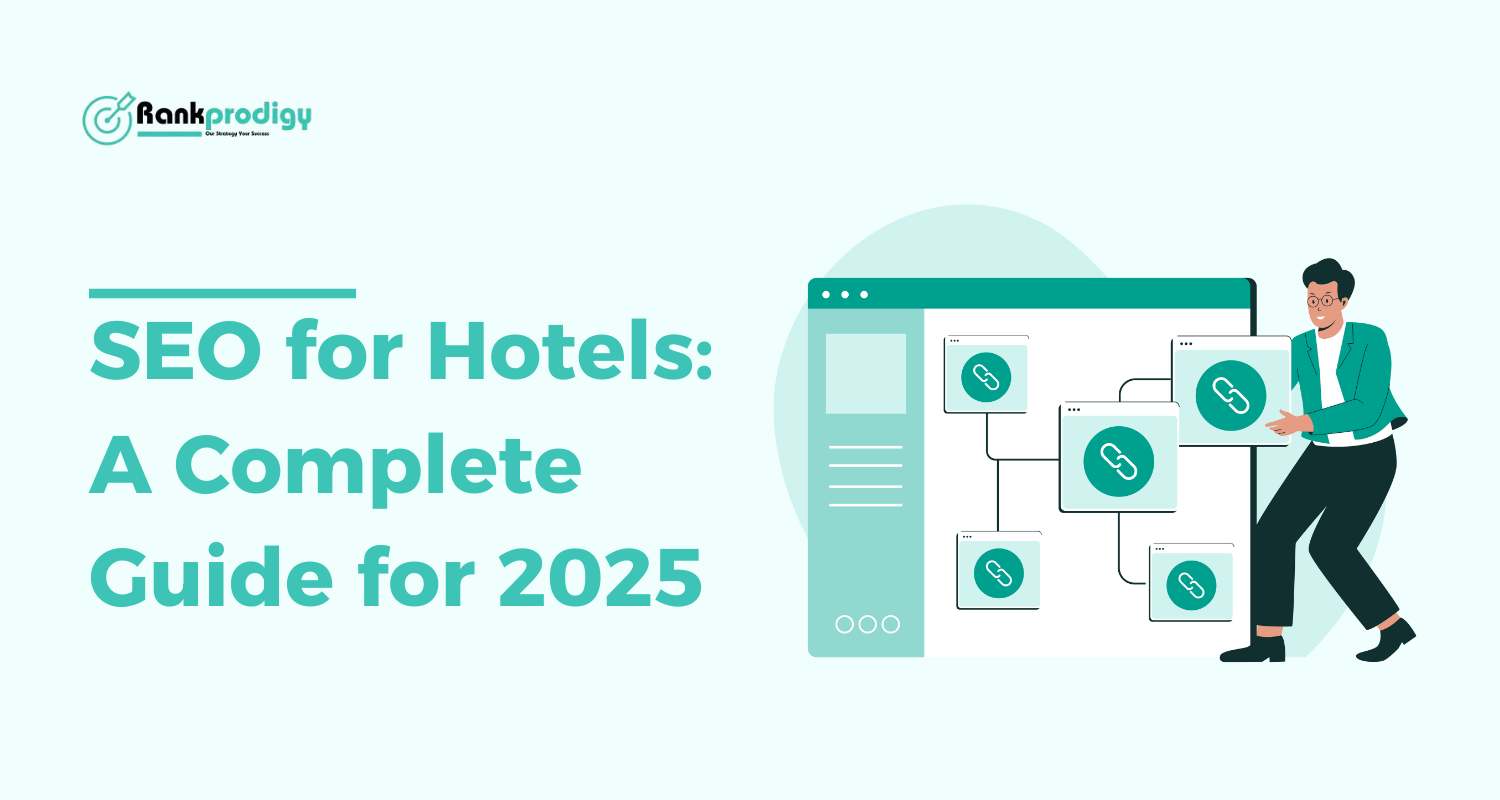Working in a hotel in 2025 guarantees one thing: the bulk of your future guests will already know everything about you before they step through the door. Whether they’re Googling, chatting to Siri or Alexa, or receiving responses from AI assistants, it’s clear that how your property appears in search results has a direct impact on bookings. That is why SEO for hotels is more important than ever.
And, if you’re weary of paying commissions to OTAs (Online Travel Agencies) and would want to book directly, this article is for you. We will go over all you need to know about hotel SEO in 2025 step by step.
Why Hotel SEO Matters in 2025
Even in the last year, the way people seek travel has changed dramatically. Google’s AI-driven Search Generative Experience (SGE) and other AI applications are starting to provide one-answer solutions in search results. This means that your hotel website must be optimized not only for traditional SEO but also for AI-based searches.
To add to that, Google’s recent revisions place a strong emphasis on helpful content, site experience, and trust signals. Simply put, if your website runs slowly, is difficult to use, and contains cut-and-paste information, you will be unable to compete. The plus side is obvious: once you nail it with SEO services for hotels, you will be less reliant on OTAs, generate more direct revenue, and develop better relationships with your visitors.
Step 1: Build a Smart Keyword Strategy
Knowing what your target audience is looking for is the first step in SEO. Dream bigger than that. Instead, create a keyword map that includes three levels of intent:
- Ready for booking (transactional searches):
- Book a hotel in [city], a family-friendly hotel near the airport.
- Commercial research (comparison stage): “Topshop bungalows in [city], luxury hotels in [landmark].”
- Inspirational searches include “what to do in [city]” and “when is the best time to visit [city].”
Use long-tail keywords that include local modifiers like neighborhoods, landmarks, and attractions. For example, instead of searching for hotels in Paris, consider a boutique hotel near the Eiffel Tower or a family hotel near Disneyland Paris. These words attract highly qualified traffic, which is more likely to convert.
Step 2: Master Local SEO (Google Business Profile First)
For hotels, local SEO is invaluable. You will notice your Google Business Profile (GBP) appear in front of your website, so treat it as a virtual front desk.
Here is what to do:
- Make sure you have the correct name, address, phone number, and hours.
- Add high-quality pictures and/or virtual tours.
- Regularly update and post offers and events.
- React quickly to both positive and negative reviews.
- Include GBP features (such as pet-friendly or complimentary breakfast) to help searchers understand what makes you special.
Your GBP can be enhanced to assist you in gaining the lead in nearby searches and map results, which are an important source of booking.
Step 3: Get the Technical SEO Basics Right
A hotel website must be more than simply a beautiful site; it must also be quick, safe, and mobile-friendly. Travelers conduct their searches on their mobile phones, so if your booking system is complicated or your site takes a long time to load, they will be lost to competitors.
Focus on these essentials:
- A smooth booking funnel implemented a mobile-first design.
- Page speed should be less than 2.5 seconds.
- Core Web Vitals: Make sure your site fulfills Google’s requirements for loading speed, interaction, and stability.
- GDPR/cookies and secure browsing (HTTPS).
It’s worth noting that an easy-to-use website not only ranks higher but also converts more people into paying guests.
Step 4: Use Structured Data to Stand Out
Search engines must know everything about your property. That is where the schema markup comes in.
- Hotels should use official data on:
- The hotel schema contains property information.
- Room features and amenities
- Offers and Pricing
- Reviews and Ratings
When you contribute structured data to your hotel, rich results like availability, star ratings, and even special offers become apparent in search. This enhances both visibility and clicks.
Step 5: Create Content That Travelers Actually Need
Remove the lifeless “Welcome to our hotel” message. The information must answer the specific questions that passengers are asking. Here’s how.
- Specific rooms and other facility sites that highlight unique selling points.
- Local excursions, guides, and itineraries (“48 Hours in [City]”) connect attractions to your accommodation.
- FAQs also include parking, airport shuttles, cancellation rules, pet policies, and accessibility.
- Posts on blogs about the season, local restaurants, or hidden gems in your city.
This not only improves SEO but also establishes your hotel as a credible source, increasing the likelihood of travelers making direct bookings with you.
Step 6: Leverage Reviews and Social Proof
Trust is the key selling point in hospitality. Google, TripAdvisor, and booking sites all rely heavily on reviews to rank and convert.
Encourage good customers to leave evaluations as soon as they have stayed at the hotel. Replay each review to show that you are engaged, and highlight positive reviews on your website. Guest photographs and user-generated material also boost credibility.
Step 7: Build the Right Links
Hotel link building does not deal with spam directories. Instead, focus on quality.
- Collaborate with local tourism boards and become listed on their websites.
- Collaborate with gathering agencies, travel influencers, and bloggers.
- Publish fresh news or offers that will be covered in the local media.
- Create useful items (such as a calendar of city events) that will be automatically linked to.
Quality backlinks lend authority to Google and drive referral traffic, which typically converts.
Step 8: Prepare for AI and Voice Search
As tourists begin to arrange their trips using AI assistants or voice commands, hotels should consider moving beyond text-based SEO.
To prepare:
- Write concise, straightforward responses to frequently asked questions.
- Make them easy to extract in structured lists and tables.
- Make the most of your voice search queries, such as “Does [Hotel Name] have free parking?”
- Mark up your property’s schema so that it is machine-readable.
The goal is to make sure that your hotel is the first response AI provides when people inquire about accommodations.
Conclusion
Hotel SEO in 2025 is not about playing the algorithm game but about being the most helpful, trusted, and accessible to tourists conducting internet searches. With an emphasis on guest-first content, local presence, technical perfection, and trust signals, SEO services in Delhi can help you increase direct bookings, reduce OTA dependency, and future-proof your digital marketing. Whether you manage a modest property in a tourist attraction region or a hotel near an airport, SEO will help you stand out in an increasingly competitive crowd.




